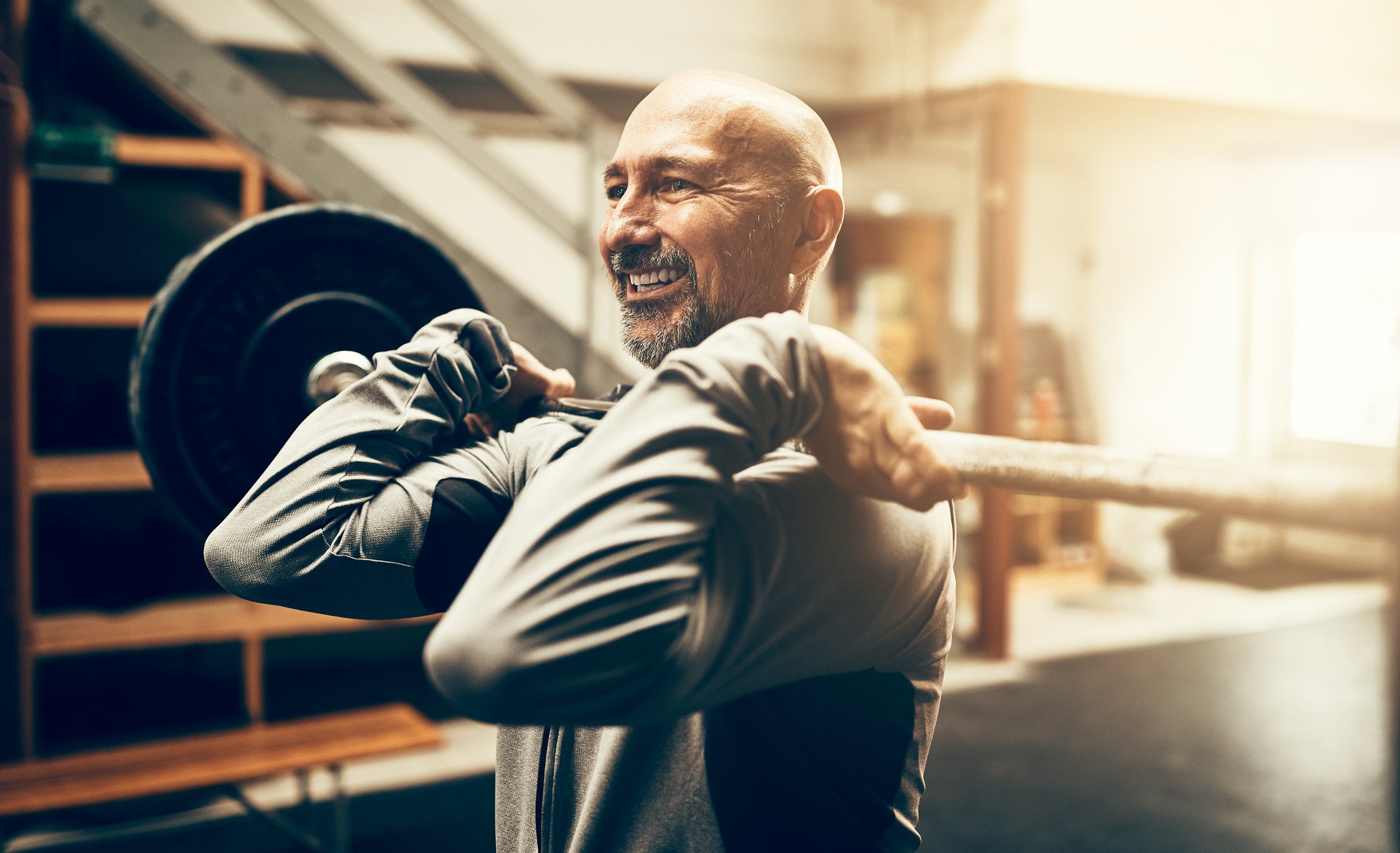
Challenges come and go in the blink of an eye on social media. It feels like yesterday that I was taking on the 75 soft challenge to find out if a fitness trend from TikTok might actually impact my life for the better. Since then, we’ve seen plenty of bizarre challenges go viral and then fade into obscurity.
Usually, these challenges fail to stick because they are simply unsustainable. Their virality is due in part to their extreme content and where the major tenets of health – sleep, movement and nutrition – are concerned, extremism is rarely enjoyable or good for the body. A more well-rounded approach applied over time with moderate, progressive overload is more likely to yield better results, which is why I raised an eyebrow when “the great lock in” started peppering my social media feeds.
This challenge is another fitness and wellbeing protocol created by influencers. It seems well meaning enough, though not all that fun if strict routines with no deviation tend to strike fear into your heart. Nonetheless, “the great lock in” does appear to be slightly more sustainable than the likes of 75 hard. In fact, it echoes many of the tips I’ve been handed by longevity experts over the years.
I spoke with two fitness experts to find out how useful, sustainable, or potentially harmful this new challenge really is.
What is the great lock in challenge?
The idea behind the “great lock in” is that for the final few months of the year, you’ll be dedicated to a fitness and wellbeing protocol that will see you “locked in” and dedicated to habits that will stick. By the time 2026 arrives, you’ll already have the strength, resilience and routine to start the new year as you mean to go on. The challenge is as follows –
- 9 hours sleep a night
- 3 litres of water a day
- No sugar
- No fast food
- No smoking
- No alcohol
- Daily cold showers
- Workouts 3-5 times a week
- No screens one hour before bed
- 10k steps a day
Though this does seem a more manageable collection of habits than those included in other viral wellness protocols, there are a few absolutes that lurk at the more extreme end of fitness – namely the daily cold showers and no sugar, both difficult in winter and during the upcoming festive season.
Fitness expert and Louisa Drake explains: “At first glance, there are some well known and generally evidence based health practices here. Improving sleep, hydration, regular exercise, daily steps, and reducing screen time before bed all have solid research backing them up.”
She adds: “Four months is quite a substantial period – certainly long enough to build lasting habits and having clear, measurable goals can provide brilliant structure for people who thrive with that kind of framework.”
However, Drake argues that a challenge like this is also extremely restrictive. “It sets up an all-or-nothing mentality that can be rather problematic for sustainable behaviour change,” she says. “The no sugar rule feels particularly unrealistic and I would worry that this could foster an unhealthy relationship with food. I find that completely eliminating foods and drinks, or these sorts of approaches, often lead to feelings of failure and guilt, which eventually causes people to give up altogether.”
Read more: I’ve been drinking kombucha for years and it’s transformed my gut health – here’s how
Drake continues: “The challenge also lacks personalisation, which I think is crucial. For some people, jumping straight into 10k steps daily might simply be too much – potentially even causing injury – whilst someone who's already quite active might find three workouts weekly insufficient. There's no consideration for individual circumstances, health conditions, or life contexts.”
Yoga instructor and personal trainer Emily Mouu agrees, adding: “Creating healthy habits that last certainly isn’t a one-size-fits all approach. It’s a very personal journey that requires reflection, action and perseverance. It’s essential to approach challenges like this mindfully. Focusing on gradual, sustainable changes and listening to one's body can lead to healthier, more lasting habits in the long run.”

Are TikTok fitness challenges safe?
Drake, the creator of The Louisa Drake Method, explains that viral challenges such as these can actually hinder habit formation in some cases, because they tend to promote perfectionism over progress.
“What we know from behaviour change research is that sustainable habits form through gradual implementation, flexibility, and self compassion when setbacks occur,” she says. “The public nature and rigid rules of these challenges often create external pressure rather than intrinsic motivation, which simply isn't as sustainable long-term.”
Not everyone’s body will respond differently to a rapid change in behaviour and in some cases, challenges like this could prove a shock to the body. Specific challenges might leave a person feeling fatigued and undernourished, and in some cases anxious or depressed about not being able to keep up with everyone else taking on the challenge.
Mouu explains: “Encouraging unrealistic standards or creating an all-or-nothing mindset, can lead to burnout or guilt if someone fails to meet the challenge's criteria. Strict dietary restrictions might lead to feelings of deprivation for some, potentially causing unhealthy relationships with food.”
Read more: What is hatha yoga? Experts explain the beginner-friendly yoga style
However, she adds that these challenges are popular for a reason. They continuously go viral because they offer an opportunity to mimic our favourite influencers and offer a place in a community of people doing similar things – something our brains often respond well to.
“I do believe for a minority, these challenges can be motivating and create a sense of community,” says Mouu. “They can serve as kick-starters for healthier habits and inspire individuals to make changes in their lives. However for the majority, they can seem unattainable.”
Expert critiques of challenges like “the great lock in” also focus on timing. Health and fitness challenges are often more popular at the start of the year in January or around September, however, Drake explains that historically, the winter months carry a far lower success rate for restrictive challenges. Our bodies are naturally preparing to rest and repair during the winter months due to shorter days and less sunlight, for this reason extreme challenges can feel even more difficult than they might during the rest of the year.

Better alternatives for lasting change
The most effective approach for improved health and fitness is usually working with professionals who can personalise recommendations based on your individual health status, preferences and lifestyle factors so that you can create a routine that actually sticks.
“The goal should really be building a healthier lifestyle that feels sustainable and enjoyable, not simply completing a rigid challenge that ends on a specific date,” says Drake. “I'd suggest starting with just one or two habits and building gradually from there. For example, you could try focusing on a consistent bedtime routine and adding exercise goals. The 2 per cent better principle works wonderfully – small, manageable improvements that build over time.”
She adds: “Building flexibility into goals is also key. Instead of no sugar, a suggestion is try to include one piece of fruit with each meal or choose water over sugary drinks most of the time. This creates positive additions rather than restrictions, which feels much more sustainable.
“I'm also a big fan of focusing on systems over outcomes. Rather than 10k steps daily, establish a system like taking a 15-minute walk after lunch. The consistency of the system matters far more than hitting exact numbers every day,.”
For Mouu, success also lies in tailoring the routine to the individual – something that challenges like “the great lock in” don’t allow.
She explains: “What works for one person may not work for another, so it’s important to find what feels right for yourself. Instead of a strict challenge, gradually introducing one or two new habits at a time can make improvements feel more manageable and less overwhelming.”
Mouu also suggests finding a buddy or community to share health goals with. This can boost accountability and motivation without the pressure of a challenge.
“Balancing ambition with realism and individual needs will provide much better outcomes and far exceed the results of a trend,” she says. “Aspire for longevity not a quick fix.”
Looking for more fitness inspiration? I tried the Royal Navy’s new fitness test – and it wasn’t what I expected
The viral 75 soft challenge will help you start the new year on a high – and it’s editor approved
I tried the walking method that offers ‘10 times the benefits’ of walking 10,000 steps per day
‘Wellness washing’ is tricking us all into thinking we’re healthy, and it’s only getting worse
Get the Well Enough newsletter by Emilie Lavinia and make sense of the wild world of wellness
What is the great lock in fitness trend and is it actually sustainable?
Expert trainer’s workout plan builds strength and mobility in just 40 minutes a week
Is NAD actually able to reverse biological age? And is it safe?







